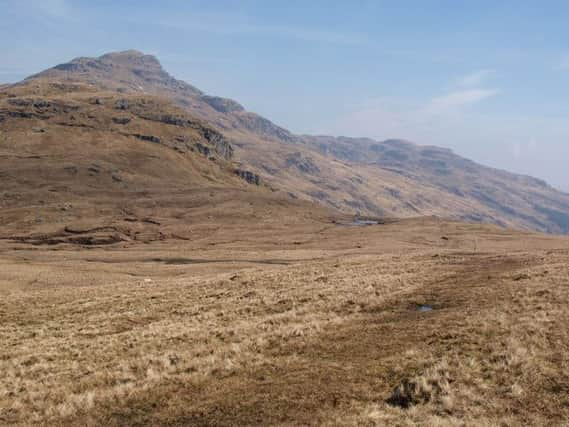Cnoc Coinnich mountain becomes Scotland's newest Corbett
This article contains affiliate links. We may earn a small commission on items purchased through this article, but that does not affect our editorial judgement.


Cnoc Coinnich in Argyll has been officially recorded as 761m (2,497 feet) high for over 60 years.
But a recent survey, which used Global Navigation Satellite System (GNSS) technology, showed that the hill in fact measures 763.5m (2,505 feet).
Advertisement
Hide AdAdvertisement
Hide AdAnd this means that it has now earned the right to be called a Corbett - a mountain which is between 762m (2,500 feet) and 914m (2,999 feet) tall.
It means there are now 222 Corbetts in Scotland and that Cnoc Coinnich will become busier as a result of hillwalking fanatics determined to bag the lot.
John Barnard and Graham Jackson, who together make up G&J surveys, carried out the survey on the mountain.
The pair had to battle through stormy weather to reach the top of the hill, where they began to collect their data. The equipment, which uses height data from satellites, is capable of accuracy to 1cm.
John explained: “We investigated the cairn and found that the highest point on the mountain was on the very edge of the crag, just under the edge of the cairn.
“We set up the GNSS, which could easily have fallen over the crag if caught by the wind which was gusting to 25mph.
“We took the chance and weighed down the legs of the tripod with rocks and relied on the fact that the wind would not change direction. Fortunately it didn’t.”
The GNSS stood in place for two hours, collecting enough information to be considered reliable.
Advertisement
Hide AdAdvertisement
Hide AdJohn continued: “Once back home we processed the data and found the height of Cnoc Coinnich to be 763.5m (2,505 feet) - a whole 2.5m (8 feet) higher than given on the maps.
“The data file was forwarded to Ordnance Survey, who processed it in leading-edge software and gave the new official height.”
Rab Anderson from the Scottish Mountaineering Club said: “This is a very interesting and unexpected result but it confirms that there are still possible changes to be made to the heights of hills in the UK when detailed measurements are carried out.
“The Scottish Mountaineering Club is pleased that the new height will appear on Ordnance Survey maps to the benefit of the wider hillwalking community.”
The last time a change was made to the number of official Corbetts in Scotland was in 2012, when one of a pair of twin Corbetts was demoted.
Sgurr a’ Bhac Chaolais and Buidhe Bheinn in Glen Shiel the Highlands were previously classified as a twin Corbett until it was revealed they differed in height by a foot, meaning that the former was demoted.
Scotland’s Corbett’s were originally listed by John Rooke Corbett, who joined the Scottish Mountaineering Club in 1923. He became the fourth person, and first Englishman, to complete all the Munros in the country - peaks over 3,000ft (914.4m) of which there are 282.
DOWNLOAD THE SCOTSMAN APP ON ITUNES OR GOOGLE PLAY
